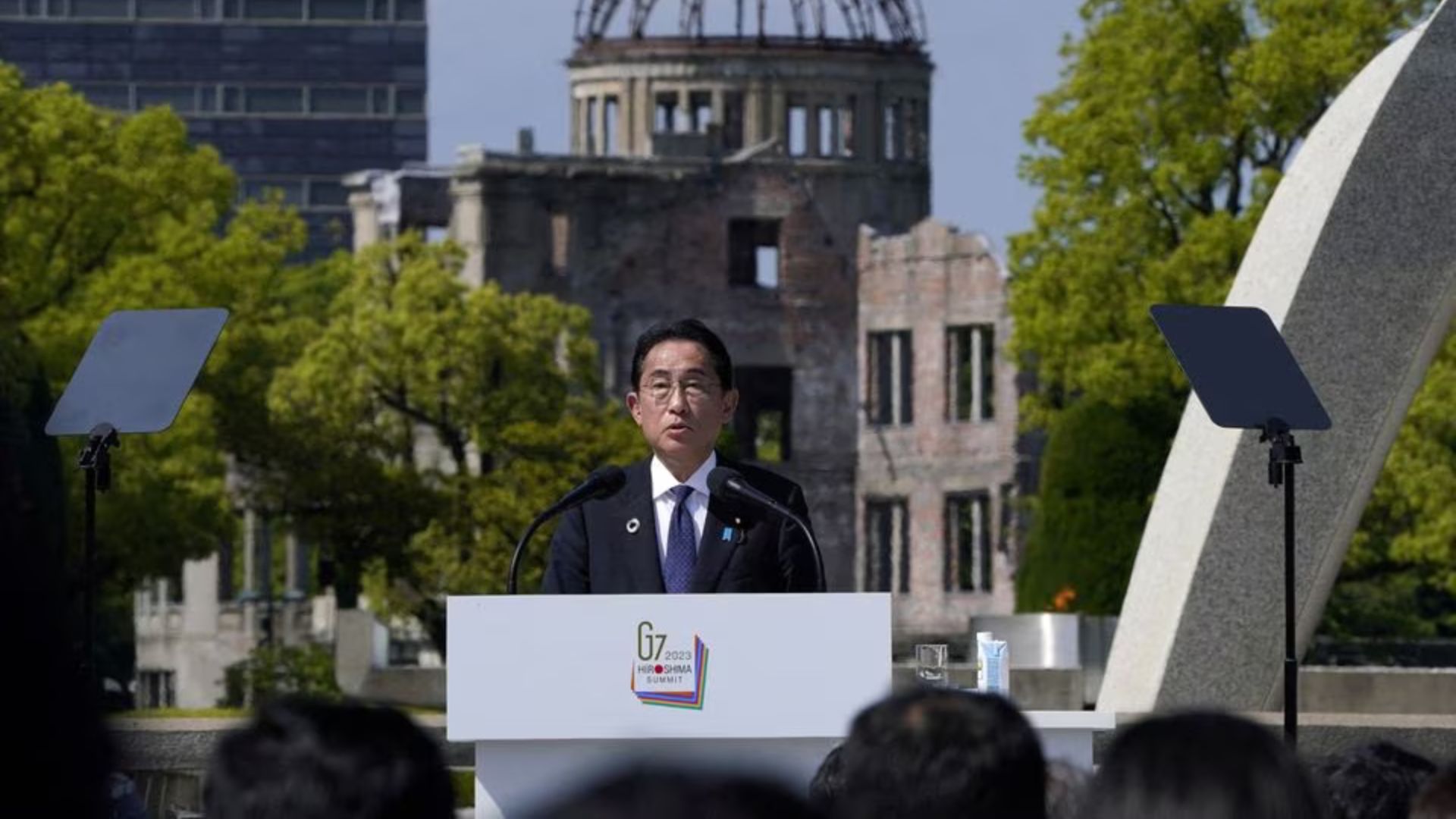TOKYO - On the 78th anniversary of the U.S. atomic bombing on Hiroshima, Japan marked the solemn occasion urging the abolition of nuclear weapons and calling the Group of Seven leaders' notion of nuclear deterrence a "folly".
The day to commemorate the victims of the world's first nuclear attack comes as Russia has raised the spectre of using nuclear weapons in its war with Ukraine.
It also comes as biopic "Oppenheimer", chronicling the creation of the atomic bomb, has become a box-office hit in the United States. Some have criticised the film for largely ignoring the weapons' destruction of Hiroshima and Nagasaki - bombed three days later, on Aug. 9, 1945. The film's release in Japan has yet to be announced.
“It is crucial to reinvigorate international momentum toward a world without nuclear weapons once again” said Prime Minister Fumio Kishida, whose constituency lies in Hiroshima, emphasized the need to reinvigorate international momentum towards achieving a world without nuclear weapons.
Kishida played a crucial role in bringing the Group of Seven (G7) leaders to Hiroshima, aiming to promote efforts towards realizing "a world without nuclear weapons," particularly in light of growing concerns over nuclear war following Russia's invasion of Ukraine.

Japan’s Prime Minister Fumio Kishida speaks in front of the Cenotaph for Atomic Bomb Victims and the Atomic Bomb Dome in the Peace Memorial Park during the Presidency Press Conference of the G7 Hiroshima Summit in Hiroshima, Japan, 21 May 2023. .REUTERS
During the G7 summit held in Hiroshima, the leaders, including nuclear powers Britain, France, and the United States, made an unprecedented joint visit to the Hiroshima Peace Memorial Museum. There, they met with Keiko Ogura, an 86-year-old atomic bomb survivor. The summit produced the G7's first-ever joint document on nuclear disarmament, titled the "Hiroshima Vision," which emphasized the significance of the Nuclear Non-Proliferation Treaty as the "cornerstone" of non-proliferation and the "foundation" for disarmament.
However, the Hiroshima Vision received mixed reactions from atomic bomb survivors, known as hibakusha. A Kyodo News survey taken after the summit showed that 51.7 percent of those polled viewed the statement negatively. Of those respondents, 59 percent cited the lack of any mention of the Treaty on the Prohibition of Nuclear Weapons, which Japan has not participated in, despite its effect since January 2021 and its ban on the use of nuclear arms.
Hiroshima Mayor Kazumi Matsui used the anniversary commemoration to call on world leaders to recognize the folly of relying on nuclear deterrence amidst today's nuclear threats and instead take decisive steps towards eliminating nuclear weapons. He urged Japan to join the nuclear weapons ban treaty and at least participate as an observer in the second meeting of the parties to the treaty, scheduled for November.
The Hiroshima commemoration drew representatives from 111 countries and the European Union, marking the highest number on record. Notably, Russia and Belarus were not invited for the second consecutive year due to the ongoing tension arising from Russia's invasion of Ukraine.
The commemoration ceremony remembered the devastating impact of the atomic bombings on Hiroshima and Nagasaki, as well as their role in bringing an end to World War II when Japan surrendered to the Allied forces six days after the bombings.
As of the end of March, the Japanese government recognized 113,649 officially registered survivors of both attacks, with their average age surpassing 85. In fiscal year 2022, 9,350 hibakusha passed away, resulting in a decline in the total figure. However, the decrease was partially offset by an expansion in recognitions from April 2022 of individuals exposed to the radioactive "black rain" that followed the bombings.
On this somber anniversary, the world's attention turned to Hiroshima's call for peace and the urgent need to address nuclear threats, ensuring that the tragic events of the past serve as a powerful reminder of the importance of working together towards a nuclear-free future.